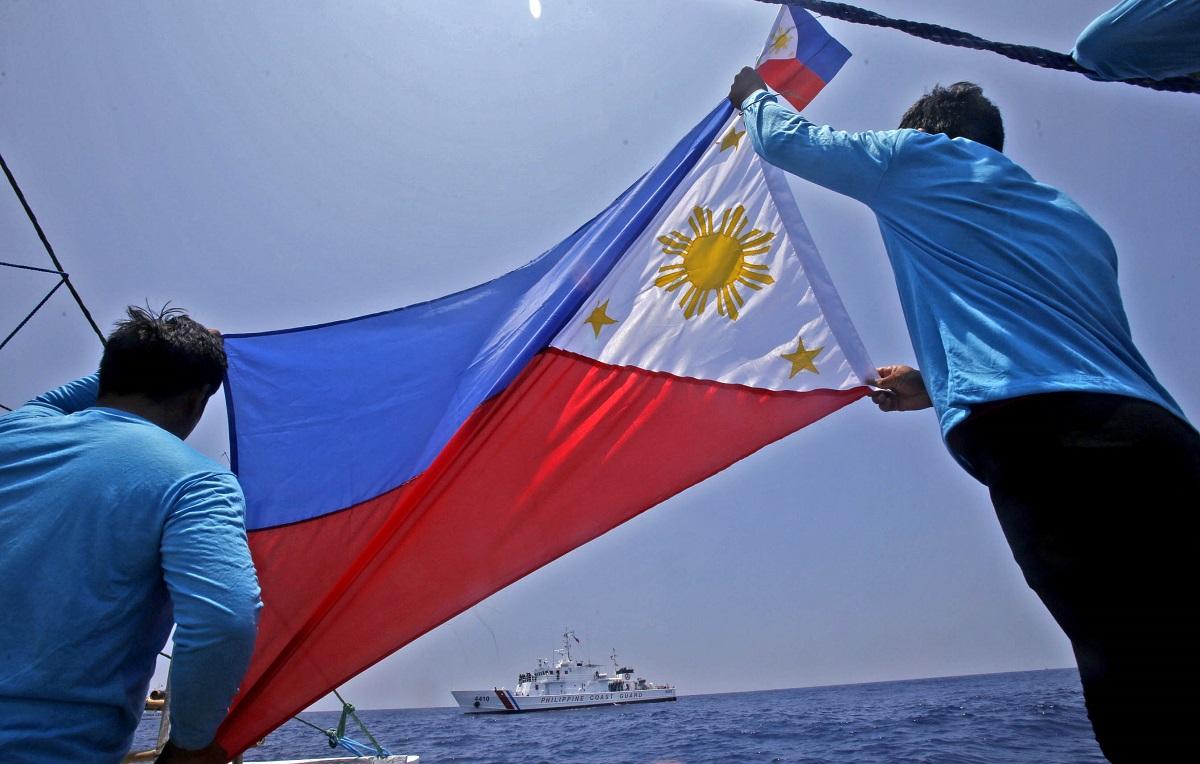NSC: New laws empower PH to promote peaceful maritime activities

The newly signed Maritime Zones Act and the Archipelagic Sea Lanes Act will enable the government to effectively implement maritime laws and assert its jurisdiction amid tensions in the West Philippine Sea, National Security Adviser Eduardo Año said Saturday.
"These laws empower us to govern our maritime zones effectively, while promoting lawful and peaceful maritime activities," Año said in a statement.
Año said the signing the two pieces of legislation by President Ferdinand Bongbong Marcos Jr. last Friday marked "a pivotal moment in fortifying our maritime sovereignty and securing our national interests."
The NSC chief said both acts are aligned with international law and based on the Philippines' rights and obligations under the United Nations Convention on the Law of the Sea (UNCLOS).
Año said these laws provide "a clear and robust legal framework to protect and manage our maritime resources and entitlements, ensuring their sustainable use for the benefit of the Filipino people."
"In doing so, it further strengthens our legal standing in line with the 2016 Arbitral Ruling and international norms. Equally important is the Philippine Archipelagic Sea Lanes Act, which enables us to regulate the passage of foreign vessels and aircraft within our archipelagic waters," Año added, as he thanked the Senate and the House of Representatives for their roles in passing the laws.
China summoned the Philippine ambassador because it was upset with Manila's enactment of the two pieces of legislation.
The Maritime Zones law "illegally includes most of China's Huangyan Island and Nansha Islands and related maritime areas in the Philippines' maritime zones," Beijing's foreign ministry spokesperson Mao Ning said on Friday, using the Chinese names for Scarborough Shoal and the Spratly Islands respectively.
Beijing said the laws were a "serious infringement" of its claims over the contested areas.
For maritime law expert Jay Batongbacal, China’s objections are rooted in its objective to gain control of the South China Sea.
“This signifies that the parties they’re uneasy with—such as the U.S.—could also navigate through these archipelagic sea lanes too easily," said Batongbacal, who leads the University of the Philippines Institute for Maritime Affairs and Law of the Sea.
“Yun yung ayaw niya (They do not want that) because ultimately their concern is they want full control of the South China Sea that includes their ability to control who goes in and out of the South China Sea.”
Geopolitical analyst and instructor Don Mclain Gill dismissed China's assertions as disinformation.
“Ano ang sinasabi nila na hindi ito nagtutugma sa (How can they claim this is against) international law whereas this was drawn from an international law, so I think that is again another disinformation that is being spread,'' Gill said.
Sovereignty reaffirmed
Through the Philippine Maritime Zones Act, the country reaffirms its sovereignty over its internal waters, territorial sea, archipelagic waters, and its sovereign rights and jurisdiction over its exclusive economic zone (EEZ) and continental shelf.
Further, the law provides that the country's maritime domain remains secure and that foreign actions within its waters are regulated and conducted effectively in a manner that respects Philippine sovereignty and national security.
"It establishes vital safeguards to protect both our maritime resources and the environment, reinforcing our responsibility to uphold the sanctity of our waters and airspace. The enactment of these laws is a significant step toward securing the Philippines' rights over its vast maritime territories, most especially in the West Philippine Sea," Año said.
The Armed Forces of the Philippines (AFP), Año said, is now in a better position to protect the country against any infringement.
"As an archipelagic and maritime nation, our seas are crucial to our economic prosperity and national security," Año said.
"We are committed to working closely with all relevant stakeholders to ensure the full implementation and enforcement of these vital pieces of legislation," he added.
Meanwhile, the Philippine Archipelagic Sea Lanes Act designates routes in archipelagic waters for foreign ships and aircraft.
Under the new law, the system of archipelagic sea lanes, through which foreign vessels and aircraft shall exercise the right of archipelagic sea lanes passage, shall be established and designated by the President. — with a report from JP Soriano/VDV/VBL, GMA Integrated News




